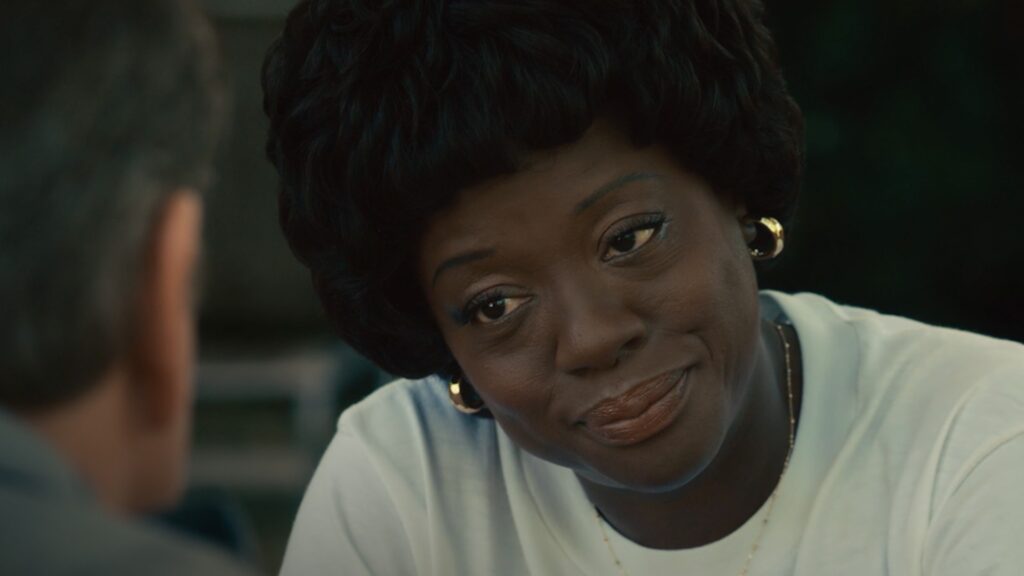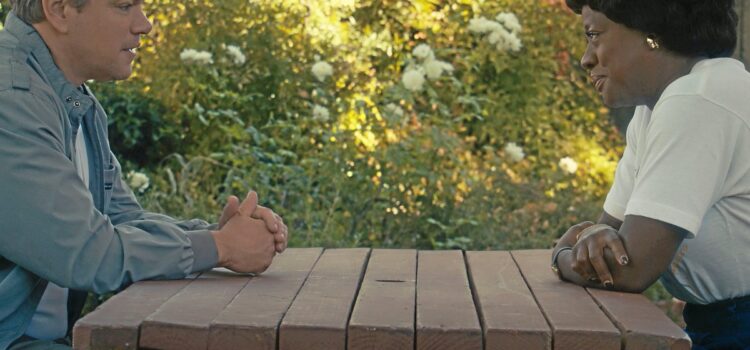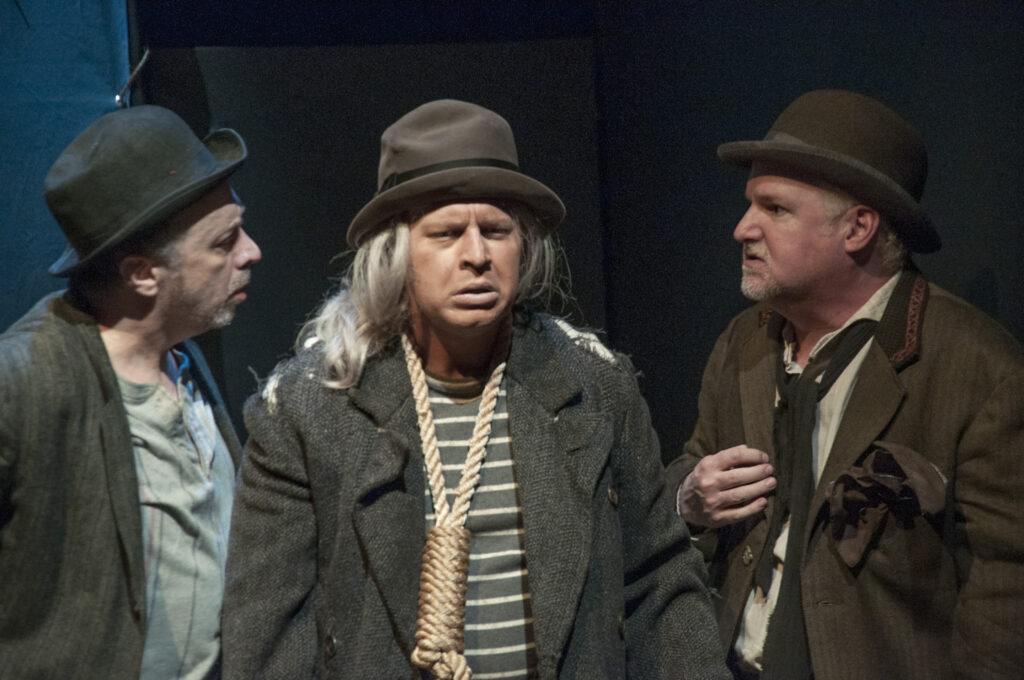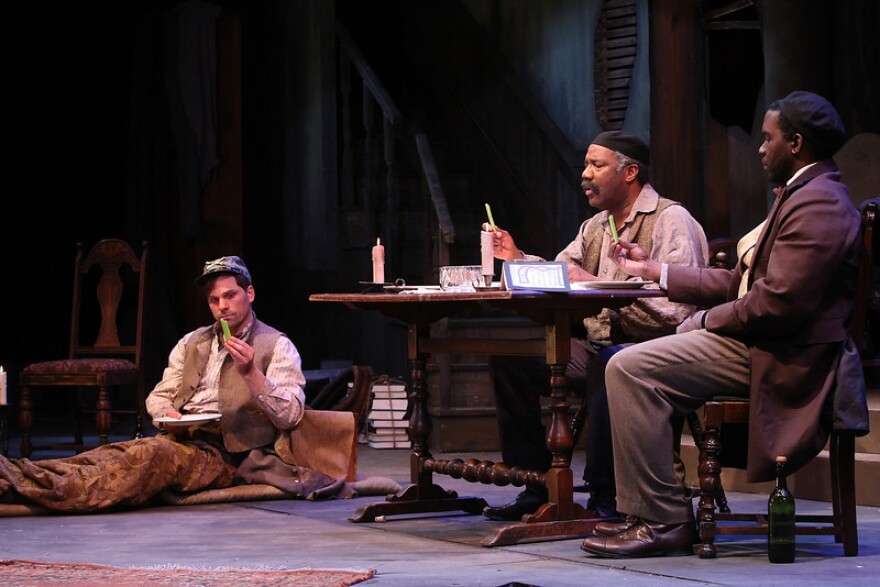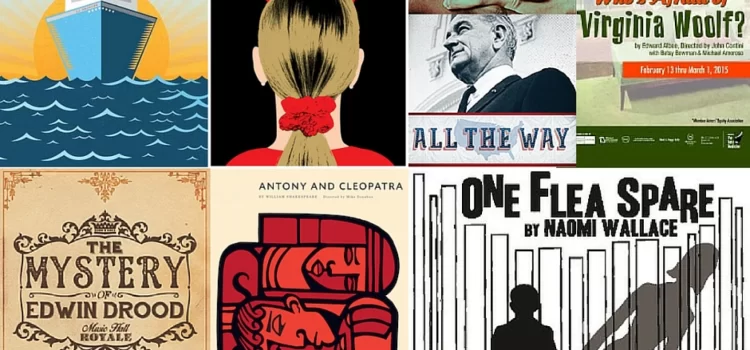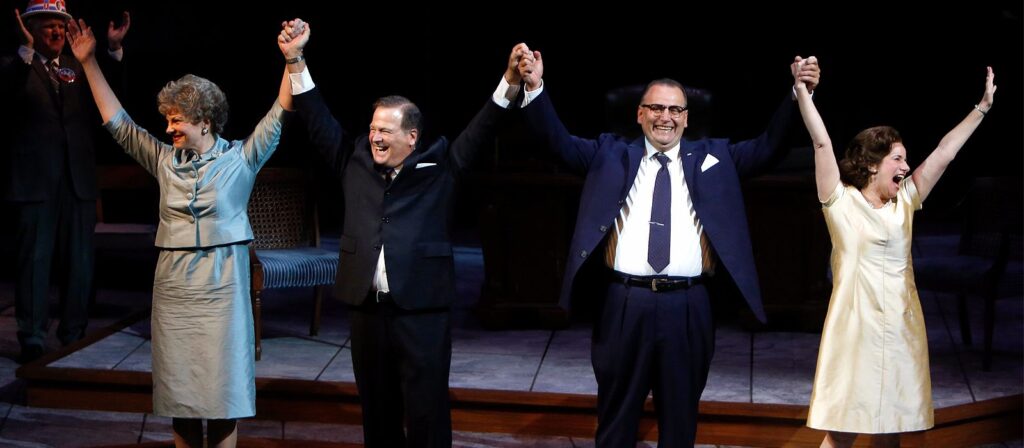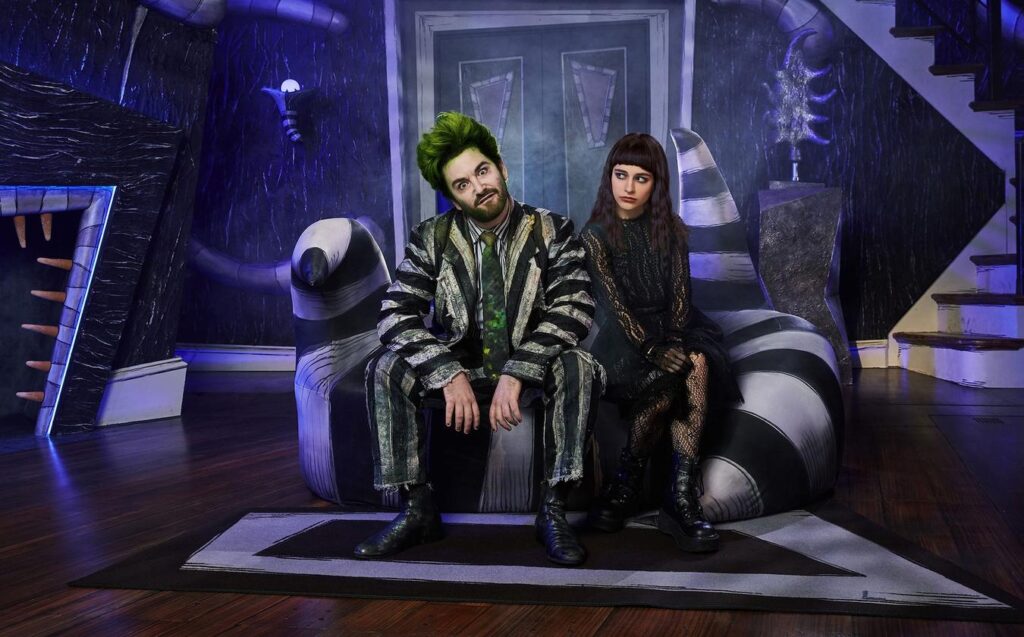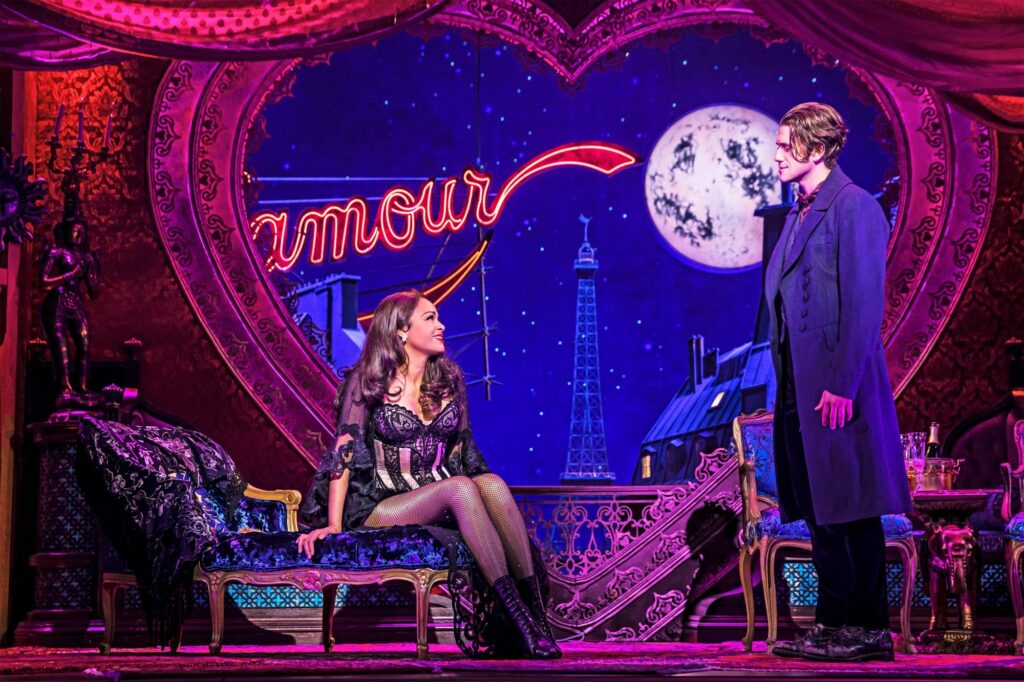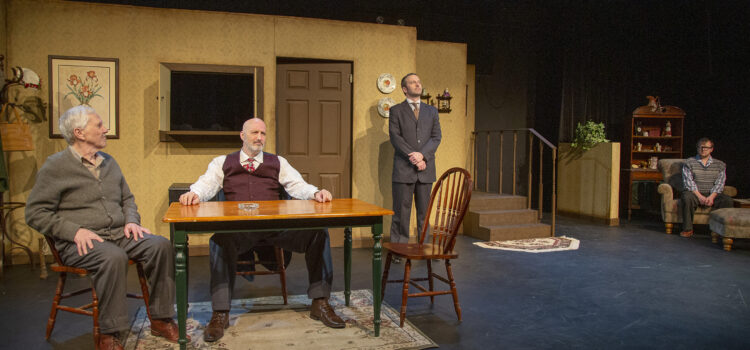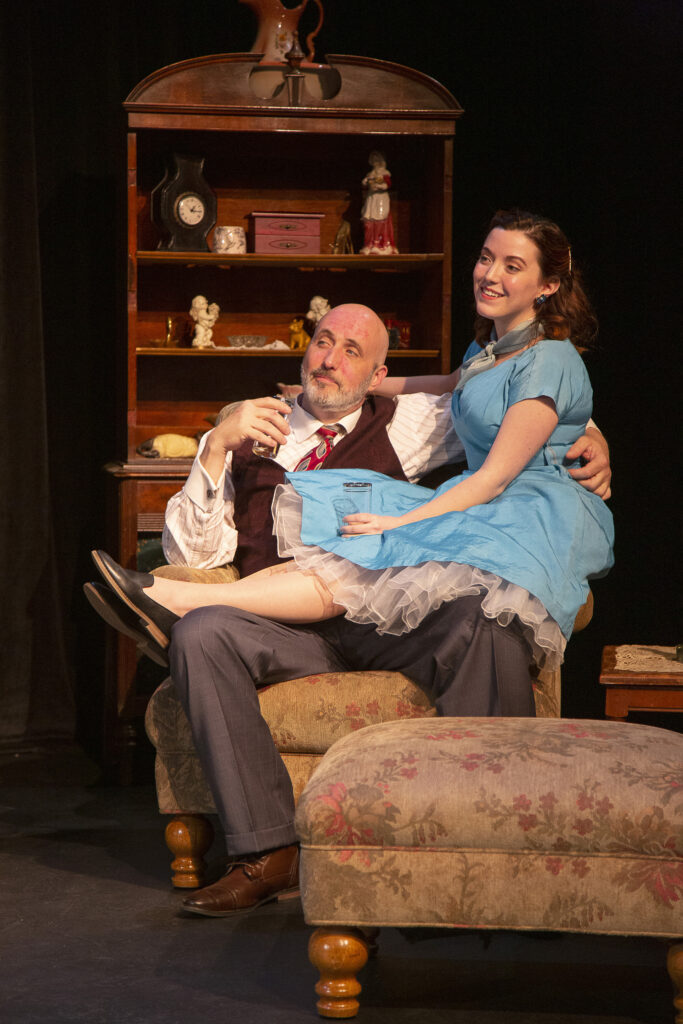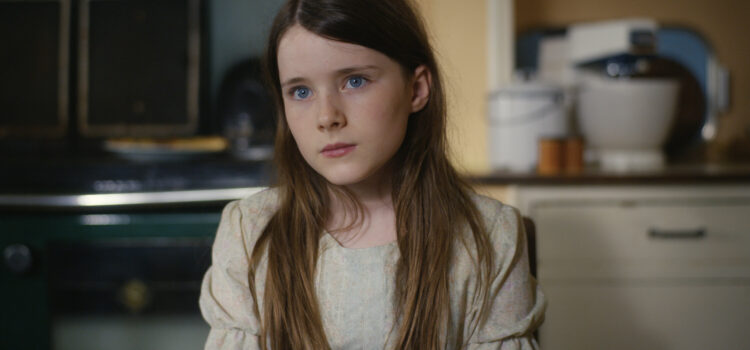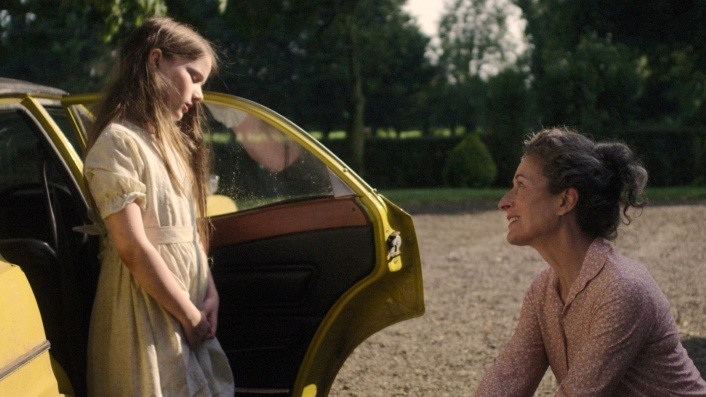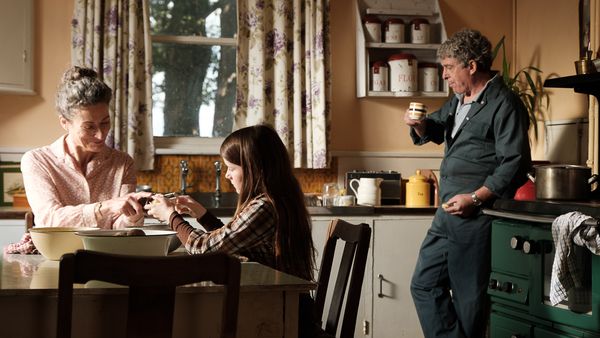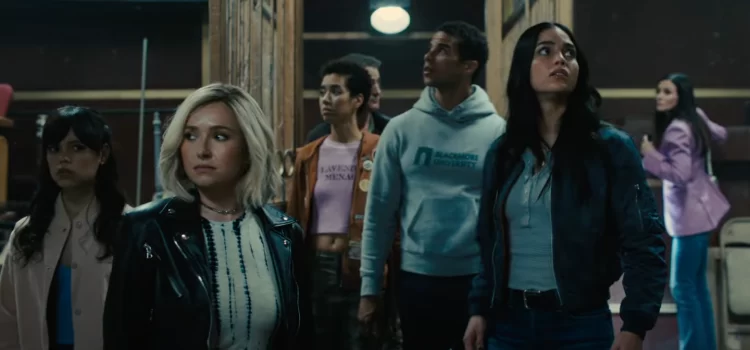By Lynn Venhaus
Let’s hear it for the risk-takers. A fascinating underdog story about a game-changing move in corporate America that revolutionized celebrity endorsements is personality-driven, thanks to an all-star cast and savvy script in “Air.”
How Nike was victorious in courting then-NBA rookie Michael Jordan for a shoe campaign in 1984 is told through the eyes of Nike staffers, especially marketing executive Sonny Vaccaro (Matt Damon), advertising manager Rob Strasser (Jason Bateman), shoe designer Peter Moore (Matt Maher), and co-founder and chairman Phil Knight (Ben Affleck).
Tightly constructed, Alex Convery’s first-time screenplay highlights the key elements — a growing niche footwear market; the arrival of the greatest player of all-time, Michael Jordan, on the professional basketball scene; a protective mother’s fierce negotiations; and a think-outside-the-box company located near Portland, Ore. This inspired-by-true-story is an energetic, entertaining film with a lasting impression — and not only for sports fans.
In his first directorial effort since 2016’s lackluster “Live by Night,” Ben Affleck is back to triple-threat greatness, shepherding this crowd-pleaser with smart moves and a keen sense of time and place. After all, his storytelling is on fine display in “Argo,” “The Town,” and “Gone Baby Gone,” too.

With considerable skill, he steeps what’s essentially a story of contract maneuvers and phone calls into a culture-defining era, from Knight zipping his purple Porsche with his personalized license plates into the Beaverton headquarters after a run, to Vaccaro buying his Wheaties in a Mary Lou Retton-Olympics box and a Sports Illustrated at the mini-mart.
The year is 1984, and the movie is drenched with a kicky ‘80s soundtrack of MTV classics that sets the mood, and quick news-and-photo montages encapsulates the Reagan years.
At the time, third-best Nike was known for its running shoes, and the upstart company viewed themselves as renegades, while entrenched Adidas and Converse were known for their basketball lines.
In 1984, Jordan left North Carolina after his junior year and was third in the NBA draft, going to the Chicago Bulls. His ability to leap and slam-dunk gave him the nickname “Air Jordan,” which Nike capitalized on as an innovator — and a lasting global brand. It’s a remarkable American ingenuity story.
As Sonny Vaccaro, Matt Damon is forceful and earnest about having a hunch about Jordan and following it through with bold aggressive moves. Sonny develops a special relationship with MJ’s Mom, Deloris Jordan (Viola Davis), that is instrumental in sealing the deal. Damon’s character is as appealing as he was in “Ford v Ferrari,” that likeable real-life guy committed to his convictions and smart enough to carry his plan through
In a small but pivotal role, Davis is masterful as the mom whose belief in her son changed celebrity endorsements and deals for athlete’s families.
Before making the film, Affleck said Michael Jordan had one request – that Davis play his mother. His father, James, is genially played by Davis’ real-life husband, Julius Tennon. Affleck focuses on the close relationship Michael had with his parents, and Davis and Tennon depict it beautifully.
Affleck also decided to have an actor play Michael only as a physical presence, preferring to use archival footage, and that works – creating more of a mythology around this larger-than-life mortal. Damian Young is credited but has no dialogue.
Relationships are key to this story’s success, and the long legendary friendship of Damon and Affleck elevates the story as well. Oscar winners for screenplay in “Good Will Hunting,” this is their 20th collaboration, and their first pairing since the underrated “The Last Duel” in 2021 is as dynamic as ever. Word is that they both contributed rewrites to Convery’s original screenplay, and they have an unmistakable rhythm/shorthand with each other.
With its folksy charm and crackling dialogue, “Air” delivers a well-acted and written story that appeals beyond the sports market. It’s a dream team of natural actors defining these colleagues so that we can celebrate their considerable achievements.
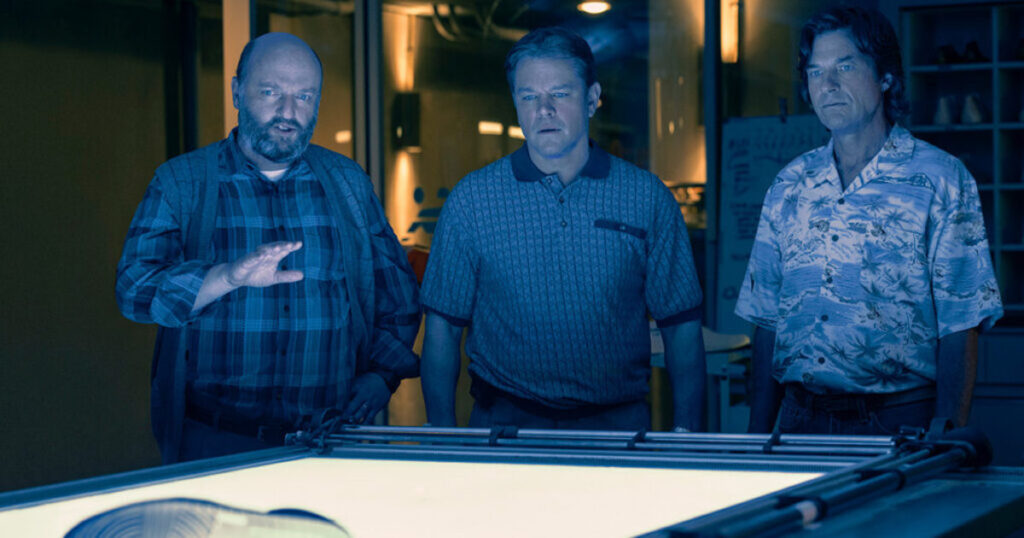
Chris Tucker is well-suited to play Howard White, one of the inspiring former college players on Nike’s roster who helped Air Jordan take flight. He developed relationships with young athletes, including Jordan. Marlon Wayans is seen briefly as Olympics basketball coach George Reveling, who coached Jordan the summer of 1984, and that powerful scene is an important foundation piece. Jordan did not want them left out of his story.
Chris Messina plays Jordan’s bulldog agent David Falk with fiery abrasive bluster.
Matt Maher, who works frequently with Ben and Casey Affleck, deftly portrays the genius shoe designer Peter Moore, who also designed the icon symbol of Jordan taking flight.
It’s a collaborative effort, indicative of a workplace drama-comedy, and gives the real-life people their due for their efforts. Even though we know what happened — but not the particulars per se — we still are enthralled by all the developments. The results-wrap-up is truly remarkable, how such a deal had tremendous ripple effects and outcomes.
It’s early yet, but “Air” is likely sturdy enough to be among the last movies standing at year’s end and will make my short list for Top Ten. Yes, it’s that meaningful, fun and enjoyable.
